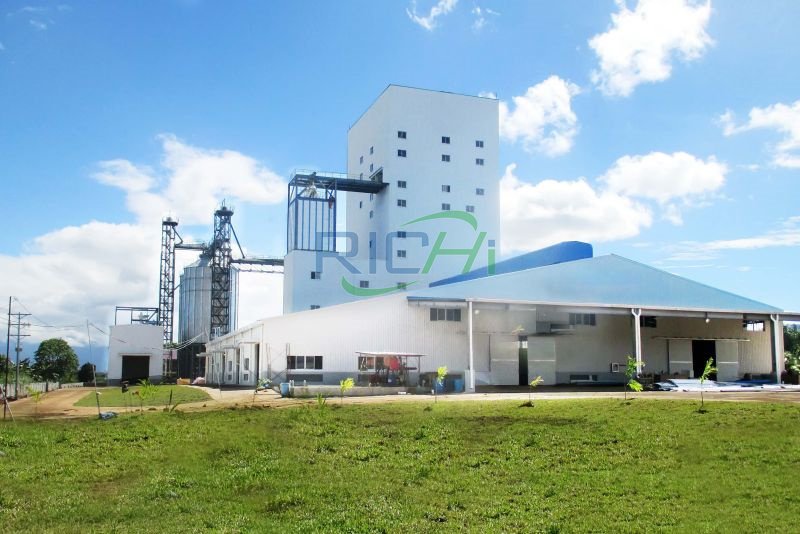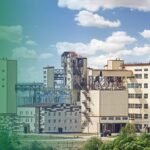Establishing a large-scale feed pellet production line with a capacity of 25-40 tons per hour (t/h) is a significant undertaking that involves various financial considerations. These include initial capital expenditures, operational costs, and other ancillary expenses. This article provides a detailed breakdown of the costs associated with such a project, offering insights to help you plan effectively.
Initial Capital Expenditure
1. Equipment Costs
The core of any feed pellet production line is its machinery. For a production line capable of 25-40t/h, high-capacity, efficient equipment is essential. The main components include:
- Feed Grinder: Essential for reducing raw materials to suitable sizes for pelletizing.
- Feed Mixer: Ensures uniform mixing of feed ingredients.
- Pellet Mill: The central machine where pelletization occurs.
- Cooler: Reduces the temperature of freshly produced pellets to ambient levels.
- Screener: Filters out fines and ensures consistent pellet size.
- Packaging Machine: Automates the packing of finished pellets.
The cost of this equipment can vary based on the brand, technology, and capacity. For a 25-40t/h production line, the estimated equipment costs range from $500,000 to $2,000,000.

2. Construction Costs
Building the necessary infrastructure to house the production line is another significant expense, encompassing:
- Land Acquisition: Costs associated with purchasing or leasing land for industrial use.
- Building Construction: Expenses for constructing the plant, including foundations, walls, roofing, and flooring.
- Utility Installation: Setting up essential utilities like water, electricity, and gas.
These costs can fluctuate depending on location, local labor rates, and the complexity of the construction. For a large-scale feed pellet plant, construction costs are estimated between $200,000 and $1,000,000.
3. Installation and Commissioning
Once the equipment and building are in place, the next steps are installation and commissioning, which involve:
- Equipment Installation: Professional setup of all machinery to ensure correct operation.
- System Integration: Linking different components of the production line to function seamlessly together.
- Testing and Calibration: Ensuring that all equipment operates efficiently and correctly.
Installation and commissioning costs typically fall between $50,000 and $200,000, depending on the system’s complexity and automation level.
Operational Costs
1. Raw Material Costs
Raw materials, such as grains, oilseeds, and agricultural by-products, are central to feed pellet production. The cost of these materials can vary due to market conditions, seasonality, and location. For a 25-40t/h production line, raw material costs are estimated at $100,000 to $500,000 per month.
2. Labor Costs
Operating a large feed pellet plant requires skilled labor, including machine operators, maintenance technicians, quality control personnel, and administrative staff. Labor costs vary based on local wage rates and staffing needs, ranging from $20,000 to $100,000 per month.
3. Energy Costs
Feed pellet production is energy-intensive, requiring substantial electricity and possibly other energy sources such as natural gas or diesel. Monthly energy costs are estimated at $10,000 to $50,000, depending on local utility rates and equipment efficiency.
4. Maintenance and Repairs
Regular maintenance is crucial to ensure the production line operates smoothly and to avoid costly breakdowns. Annual maintenance costs can range from $50,000 to $200,000.
Ancillary Expenses
1. Transportation and Logistics
Transporting raw materials to the plant and finished products to customers incurs logistics costs, including fuel, vehicle maintenance, and possibly third-party logistics services. Monthly transportation costs are estimated at $10,000 to $50,000.
2. Marketing and Sales
To market and sell the produced feed pellets effectively, investments in marketing and sales efforts are necessary. This includes advertising, hiring sales personnel, and promotional activities. Annual marketing and sales costs range from $20,000 to $100,000.
3. Regulatory Compliance
Compliance with local, regional, and national regulations is essential, covering permits, environmental regulations, and workplace safety standards. Compliance costs can vary widely but are typically estimated at $10,000 to $50,000 annually.
Total Estimated Costs
Summarizing the costs, the total investment required to launch a 25-40t/h feed pellet production line can be broken down as follows:
- Initial Capital Expenditure: $750,000 – $3,200,000
- Equipment: $500,000 – $2,000,000
- Construction: $200,000 – $1,000,000
- Installation and Commissioning: $50,000 – $200,000
- Annual Operational Costs: $2,160,000 – $7,800,000
- Raw Materials: $1,200,000 – $6,000,000
- Labor: $240,000 – $1,200,000
- Energy: $120,000 – $600,000
- Maintenance: $50,000 – $200,000
- Transportation: $120,000 – $600,000
- Marketing and Sales: $20,000 – $100,000
- Regulatory Compliance: $10,000 – $50,000
Conclusion
Starting a 25-40t/h feed pellet production line is a significant investment, requiring careful planning and consideration of various costs. Initial capital expenditures for equipment, construction, and installation range from $750,000 to $3,200,000. Additionally, annual operational costs can vary between $2,160,000 and $7,800,000, depending on factors like raw material prices, labor costs, energy consumption, and maintenance needs. (Related post:small scale feed mill)
To ensure the success of such a project, it is crucial to conduct a thorough feasibility study, secure adequate funding, and collaborate with experienced industry professionals. Understanding the full scope of costs involved allows for informed decision-making and the development of a sustainable business model for your feed pellet production line.


